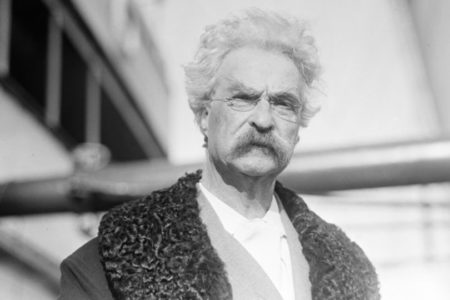Teaching Teens to Pray
Some sat on the floor, others in camp chairs, and a few reclined on the stairs. The students, ages 14 to 22, listened curiously as I posed five simple survey questions. In true text-messaging fashion, they recorded their answers using y for “yes,” n for “no,” IDK (“I don’t know”), and other abbreviations used daily in the texting and instant-messaging world.
All my questions were about prayer, and the answers were brutally honest and personal.
What is prayer? One 18-year-old answered, “Talking to God about what matters to both of us.” A 15-year-old simply said, “Life.”
Why pray? evoked the standard answers, as well as more in-depth responses born in the souls of youths looking for more than ritual. Words like intimate, communication, and relationship were underscored by one 15-year-old’s inscription: “To grow closer to God and share my thoughts.” I was impressed, to say the least.
I asked one last question: Would you like someone to teach you to pray biblically? Out of nearly 300 responses, all but two were “Yes.” Parents and youth leaders have an incredible opportunity, if not a mandate, to help students know how to pray.
In Luke 11:1, the disciples asked Jesus, “Lord, teach us to pray.” The students I surveyed are a microcosm of today’s generation conveying the same request, “Teach us to pray.”
Perhaps you’re thinking, I would love to help them, but not one teenager has ever directly asked for help with his or her prayer life. Sometimes teens ask their most fervent questions without words.
Jesus’ Guideline for Prayer
Jesus created an environment that elicited the question from His disciples: “Now it came to pass, as He was praying in a certain place, when He ceased, that one of His disciples said to Him, ‘Lord, teach us to pray’” (v. 1). Several core truths leap from the verse. For example, Jesus was praying with His disciples; and as they heard Him pray, they wanted to have the same connection with God the Father.
Also, Jesus was in that “certain place,” implying His action was not random but planned. He demonstrated that both private (Mk. 1:35) and corporate prayer (Mt. 26:36–37) are vital parts of a biblical lifestyle. His disciples knew He spent time privately with the Father. I am not suggesting we flaunt our personal devotional life. But if we desire to kindle a fire in their souls, we must first show teens that spending devotional time with God is a part of our lives.
Jesus not only prayed for the disciples, He prayed with them, as indicated by their request immediately following His prayer. As they prayed together, they were overtaken by a desire to have the same intimate relationship with God. Can you imagine praying with teens and having them plead with you to teach them how to pray?
Jesus not only established how to get their attention but also gave us clear direction on what to teach our students about this spiritual dynamic. In almost a matter-of-fact fashion, He said, “When you pray” (Lk. 11:2) and then imparted several core concepts of prayer. Many have referred to this section of Scripture as the Lord’s Prayer, but it is really the disciples’ prayer because it is a guideline for praying to God.
Worship of God. “Our Father in heaven, hallowed be Your name” (v. 2). Prayer should begin with worship, not with a grocery list of requests. One of the most misunderstood elements of prayer is worship. Somehow we have forgotten what several students in the group I surveyed understood. Said a 16-year-old: “We pray to be intimate with Christ.” A 17-year-old said we pray “to draw closer to God and get to know Him.”
If we can awaken the hearts of our teens to the intimacy of worship, we will create a foundation for more than prayer. We can build a life platform upon which all Christian experience should be erected. Once people learn to unite their hearts with God through worship, the potential of their relationship with Him is limitless. If we want to have a generation of teenagers who worship God, then we are compelled to demonstrate that pattern in our own lives as an example.
Will of God. “Your kingdom come. Your will be done on earth as it is in heaven” (v. 2). The heart that truly worships will merge naturally into alignment with God’s will. Prayer is not about getting God on my page but about me getting on His page. It’s about becoming part of His agenda and plan. Each day as our students come to God, they should seek His direction for the choices, pressures, and personal encounters of the day. This is probably a change of paradigm from the way many of them (and many of us) operate.
Walk With God. “Give us day by day our daily bread. And forgive us our sins, for we also forgive everyone who is indebted to us” (vv. 3–4). In these verses Christ provided a strategy for our daily walk. He covered some of the issues that confront all of us each day. Verse 3 reminds us we are dependent on Him. It speaks of trusting Him to give us what we need and to keep us from unnecessary excess in our lives. A puritan writer said it this way: “I thank thee that many of my prayers have been refused.”
Verse 4 deals with forgiveness, which begins in our personal lives as we confess sin and again acknowledge dependence on God to cleanse us. We need to instruct our teens to keep short accounts with God. In other words, they need to confess and forsake sin frequently. We can talk about purity with them, but purity begins with recognizing sin as defined by God’s Word.
Humanly speaking, forgiveness is difficult; but if our teenagers are willing to begin with personal sin, the realization of the forgiveness of Christ can serve as motivation to pardon others. Many harbor anger, hatred, bitterness, or jealousy toward others, and it eats away at their souls like a cancer. Forgiveness is not only biblical; it is healing and liberating.
Warfare for God. “And do not lead us into temptation, but deliver us from the evil one” (v. 4). Jesus concluded His instruction by reminding the disciples and us about our warfare. Sin is no longer gray in the world in which our students live: It is camouflaged. It has been redefined, reimaged, and reinvented. Teens are being seduced by sin in a pluralistic society that trumpets the absence of absolutes. Helping them to ask God daily for protection and wisdom is a great way to equip them for the spiritual battle.
The disciples were not super Christians who mastered the spiritual discipline of prayer merely because the Lord gave them this one lesson. They continued to struggle, fail, and fall. But they also moved out for God, withstood persecution, and helped change the known world with the gospel.
I believe that in the hard moments of life and in times of victory, they remembered the Lord’s teaching; and it secured their hearts.
I leave you with a few more student responses to my question “Why pray?”
“To meet Christ individually.”
“To develop intimate fellowship with our heavenly Father.”
“To strengthen my relationship with God.”
“To keep in touch with Jesus.” Can you hear the passion of a generation saying, “Teach us to pray”? Will you embrace the challenge?







